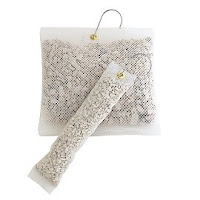Just 300 of these(chemical) plants put a third of Americans at risk.
>>>CLICK HERE TO SIGN THE PETITION<<<
Just 300 of these(chemical) plants put a third of Americans at risk.
- The Boxed Water container is far more sustainable than plastic bottled water. About 76% of the box is from a renewable resource, trees.
- The trees used to make our box come from certified, well managed forests. These forests remain healthy and stable through ongoing replanting while removing CO2 from the atmosphere.
- We ship our boxes flat to our filler which is significantly more efficient compared to shipping empty plastic or glass bottles to be filled.
- Our boxes are recyclable where facilities exist. The Carton Council is continuously adding new carton recycling facilities throughout the US. Please visit www.recyclecartons.com to learn more. Also, our box is easily flattened to its original state taking up less space in landfills.
- We really care about the world's water supply. 10% of our profit is donated to world water relief foundations. We feel anyone who consumes our product is in a privileged position and it's important that part of their spending goes to help those who are not as privileged. Just makes sense, doesn't it?
- We really care about the trees. So much so that we donate yet another 10% of our profit to reforestation foundations. So when you're drinking this water, you're helping to plant more trees and protect our forests, strengthening mother nature's lungs.



In 1997 Durham passed an ordinance making it unlawful to place target recyclables in the garbage
"It'll help us reduce waste going to the landfills. Obviously, it'll help us recover a valuable material," said state recycling director Scott Mouw.
"We consume today 12 times as much as we consumed 100 years ago, putting an immense pressure on the planet's resources."
-@InjusticeFacts
An oil spill from a stranded cargo ship off New Zealand is the country's worst environmental disaster in decades, the government says.
"This event has come to a stage where it is New Zealand's most significant maritime environmental disaster," he told a news briefing in Tauranga.
a section of pipe had burst near the river that cuts through the slum and gasoline was pouring out. Men, women and children grabbed pails, jerry cans, anything they could find to collect the flowing fuel.
Mwangi had planned to get a bucket and join them - he'd done so before with earlier diesel leaks without any problem, he said, and a bucket of fuel could pay a month's rent. "Everybody knows that fuel is gold," the 34-year-old said.